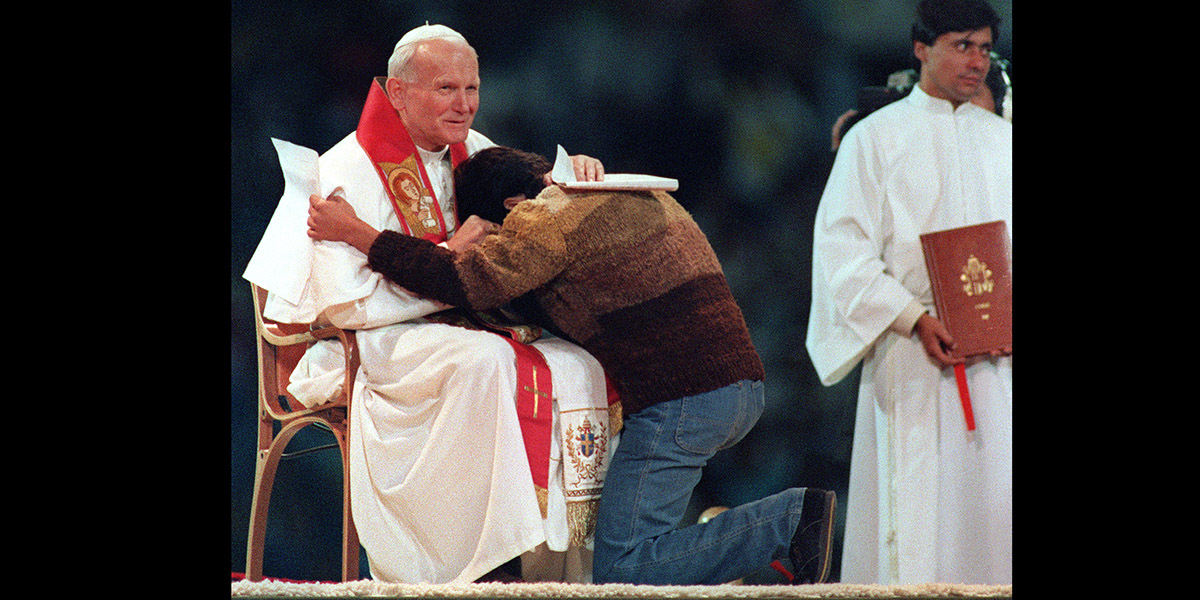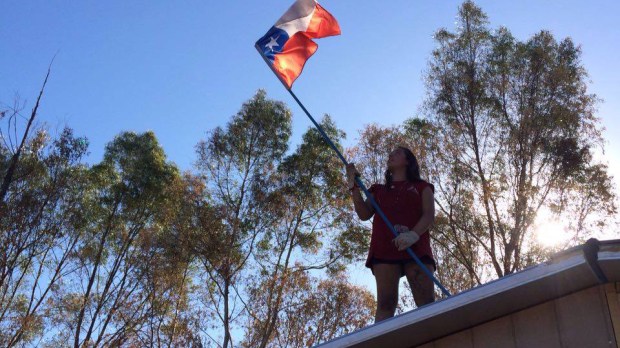On the last day of his trip to Chile (January 15-18), Pope Francis will meet privately with two victims of Augusto Pinochet’s military dictatorship. Thirty years earlier, Pope John Paul II tried to work for reconciliation while being the victim of instrumentalization by the regime.
When he went to Chile in April of 1987, Pope John Paul II made one of the most difficult journeys of his pontificate. Tensions in the county were extremely high since the coup led by General Pinochet in 1973.
The Polish pope was strongly criticized for not denouncing the dictatorship vigorously enough, and for being too complaisant with the dictator. He was particularly criticized for having appeared with the Chilean general at the balcony of La Moneda Presidential Palace in Santiago, where Salvador Allende had committed suicide 13 years earlier during the coup. Allende, a socialist president, led Chile from November 1970 to September 1973.
John Paul II, however, was being manipulated by Augusto Pinochet that day, the Italian website ACI Stampa reported. The Chilean dictator waited for the pontiff on the main floor of the palace, rather than on the ground floor as originally planned. The Chilean head of state then urged the pope to bless the crowd gathered in front of the window. Once John Paul II was on the balcony, Augusto Pinochet then joined him to let the photographers immortalize the scene.
Symbolic gestures
The incident did not prevent the future saint from making many symbolic gestures during the rest of the trip. For example, he showed the crowd the Bible of Father André Jarlan, a French priest accidentally killed on September 4, 1984, by Chilean military fire. He also embraced Carmen Gloria Quintana, a young woman badly burned by the army.
To further rebalance the perceived position of the Holy See, thrown off balance by the incident at La Moneda Palace, St. John Paul II even held an improvised meeting with representatives of opposition parties. “In the name of the Gospel, I ask everyone to strongly reject the temptation to resort to violence, which is always unworthy of man (…) you will contribute to the removal of present tensions, and you will promote the process of national reconciliation,” he told them.

600 wounded during Mass
This exceptional audience was held by John Paul II just hours after Mass at O’Higgins Park in the presence of 600,000 faithful. Clashes between the police and anti-regime protesters had left 600 people injured. The pope did not interrupt the ceremony, but knelt down at the end of it to pray for a long moment in silence, his face hidden in his hands.
A year later, Augusto Pinochet lost a referendum supposed to confirm his authority for eight more years, ending 17 years of rule. During his government, from September 1973 to March 1990, systematic violations of human rights were recorded. The authorities estimate that approximately 40,000 people were murdered, imprisoned, or tortured for political reasons. Pinochet continues to be a polemical figure in Chile, as the coup he led brought an end to socialist rule and certain of his policies were welcomed.

